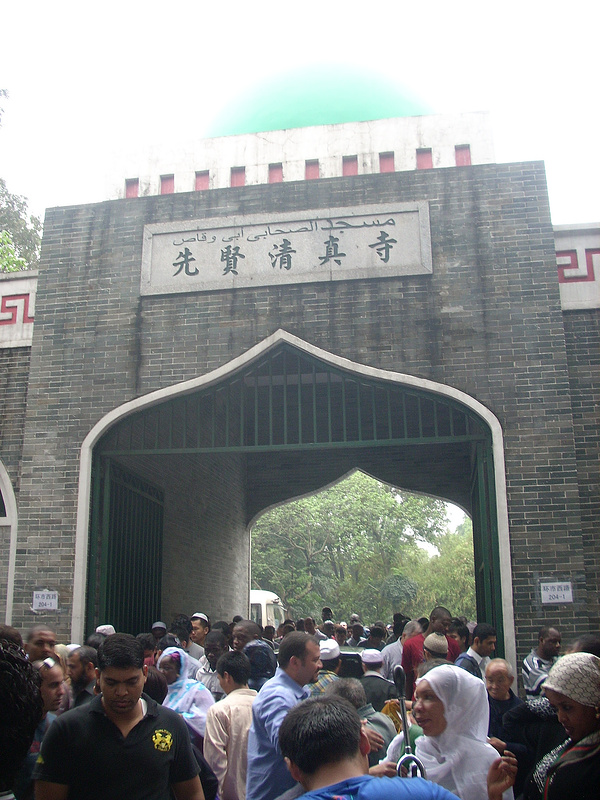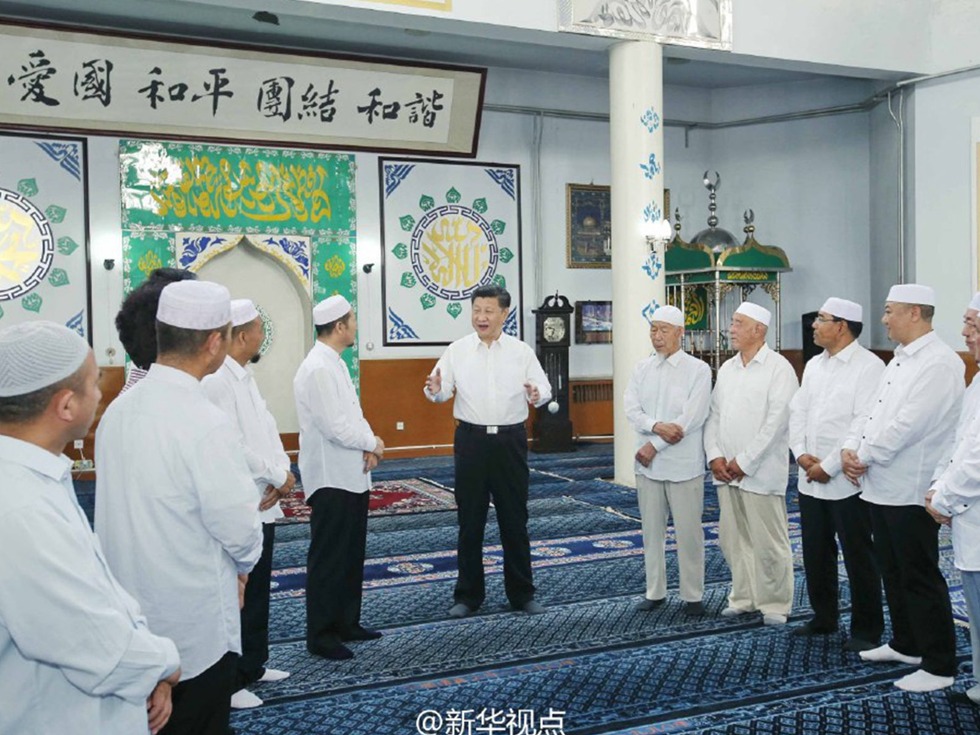Additional police have been drafted in to look for any evidence of extremists
Chinese cities with large Muslim populations have tightened security ahead of the holiday of Eid al-Fitr on Friday, with additional police and anti-terrorism units drafted in to check for any evidence of infiltration by extremist groups.
It is expected that at least 10 ethnic groups, comprising about 20 million Chinese, will take part in the festival, which marks the end of the Islamic holy month of Ramadan. Eid al-Fitr will be marked by feasting, after Muslims abstained from eating and drinking between sunrise and sunset during Ramadan.
The People’s Daily reported that religious venues and mosques in the southern trading hub of Guangzhou were being guarded by police around the clock to maintain peace and order during Ramadan, with around 2,500 Muslims celebrating the festival daily at four mosques. The Xianxian Mosque in Guangzhou. Photo: Handout
The Xianxian Mosque in Guangzhou. Photo: Handout
Guangzhou has a sizeable Islamic population, and it has been swelled by settlers and merchants from the Middle East. Local newspapers said Muslim employees would be given the day off on Eid al-Fitr.
Public security personnel and members of China’s National Anti-Terrorism Leading Group inspected Guangzhou’s Xianxian Mosque in the downtown Yuexiu district before Ramadan began on May 17. Yuexiu is a major draw for foreign Muslims, including many from Southeast Asian countries.
Police are also on alert for signs of extremists and infiltration in Yinchuan, the capital of the western Ningxia Hui Autonomous Region and Ürümqi, capital of Xinjiang (East Turkistan) Uyghur Autonomous Region, where Hui, Uyghur and Kazakh people congregate for the festival.

The Islamic Association of China has endorsed the need for a heavy police presence in and around major mosques, aided by video surveillance systems and facial and fingerprint recognition.
Its deputy chairman was quoted by the People’s Daily as saying that “it’s necessary to arrange security measures during Eid al-Fitr, when large numbers of people head for mosques and public places”.
China’s State Administration for Religious Affairs has also ordered that worshippers use their ID cards, signatures and signed letters of commitment against extremism when they apply for a permit to temporarily use venues for religious activities. The vetting process takes up to 40 days and the permit is valid for as long as three years, the SARA’s website said.






